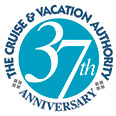The unhip, unexpected joys of cruising
By Mark Bittman, NY Times columnist
I have an embarrassing admission to make: I like cruises.
This is, of course, among the least hip things one can say. My friends look at me with incredulity. I feel the glare of the late David Foster Wallace, who in his 1996 Harper’s essay “Shipping Out,” later retitled “A Supposedly Fun Thing I’ll Never Do Again,” exposed cruises for the torturous, un-fun things they can be. So be it.
There is a qualification here: I have worked on cruises, as part of the “entertainment staff.” (Though I’m not very entertaining, I may actually be funnier than the so-called comedian.) This comes with the very real benefit of not paying, although there is the downside of having to work, and being bossed around a bit. So I may miss a few hours of time to myself in order to give a lecture or prep ingredients or demonstrate recipes. Or even get cornered by curious fellow passengers, asking things like “Oh, you’re the celebrity chef?” (Which I’m not, but close enough.) In short, I’m less busy than the servers, but more obligated than the average passenger.
I’ve taken five of these cruises in the last eight years, to destinations as varied as the North Sea, the Greek Islands and Antarctica, and each one seems to whet my appetite for the next. Admittedly, these trips have not been on shabby operations nor have they gone to common destinations. That is part of the point.
Nevertheless, my first journey took some gearing up to, because cruising is so easy to put down. I was like that: too sophisticated to consider it. You know: I’ll take Paris. Until you try it, it’s far easier to accept that cruises are gauche and for “others” than to explore the ecosystem.
Many of the common complaints about cruise ships ring true: The best of the entertainment is boring. Most of the food is mediocre, and it’s usually about as opposite of “local” as you can find. (Indeed most of the food is shipped in containers from the States or other central locations to ports of call.) The excursions are rushed, timid, overpriced. Many of the ports have nothing in them worth seeing. The companionship is limited. (The best cruise joke I know: “This cruise has the oldest passengers I’ve ever seen. And most of them brought their parents.”) There are the risks of illness, although my experience is that the industry has become germophobic and ships seem safer than most workplaces, contagion-wise. Then there’s the issue of safety, although there’s not much to worry about. You might hit rough seas, and even become seasick.
Some other things I have found: In general, the prices are not unreasonable, especially since they’re often discounted. The service is usually excellent, especially compared with hotels and restaurants on land, at least most of the places I frequent. The food is as abundant as you’ve heard, generally better than that in most hotels; furthermore, after a few days, you can probably strike a deal with a friendly cook to customize it as you like. (For the most part, the ingredients are typical food-service quality, and there’s no getting around that. Sometimes you get lucky and a bold chef does his shopping in a good port.)
There’s also an odd level of equality: Everyone spends time in the public spaces, and those are shared, although there are no doubt exclusive lounges for the highest-paying passengers. Much of the food, too, is the same for everyone.
There is, of course, the cabin, where you get what you pay for, and that’s a big differential. Unless you’re photophobic, an interior cabin is not anyone’s first choice, and an upper-deck suite may be nicer than your normal abode. Not much can be done about this.
But there are two other factors that make cruising not only unusual but uniquely satisfying, at least to me. The first is completely obvious, and yet it tends to be overlooked with all the talk of booze, food, partying and entertainment. It is simply that the “floating hotel” means that your vacation is structured like this: You get onboard; you unpack; you never change rooms again; and yet you go different places. Effortlessly.
At a time when many of us are traveling greater distances with greater frequency and more stress than ever, it’s an incomparable luxury to put your suitcase under the bed and not think of it for days or, if you’re lucky, weeks. To keep your toothbrush parked in the same place; to not search for your cellphone charger among your belongings; to leave your magazines in a stack; to recover from jet lag once, at most — all while actually traveling — this feels inconceivable.
It is even better if you take the approach that fewer ports may be better. I was once on a “crossing” from London to New York, with stops in the Faroe Islands, Reykjavik and Nuuk (Greenland), places whose charms are not revealed in six hours. In those ports, and many others, I simply went for a run or a walk and retreated to the ship, which was sublimely peaceful when in port. On a trip from Santiago to Buenos Aires via Antarctica, I did not set foot on land for seven days.
At the beginning of those seven days, we — I was traveling with my wife — were cautious. Seven days at sea? With these people? And yet, these days were fantastic. Almost needless to say, the scenery, the glimpse of the world’s most remote place, is astonishing. You are in a harsh, terrifyingly beautiful environment, eating not-bad pea soup being brought to you in steaming bowls on deck.
Then there is the ability to carve out your own space in the vastness of the sea and in the impersonal, weird nature of the floating hotel. After all, the only thing you have in common with the people you encounter daily is that you’re all in the same boat (ship, technically). This is not much more to have in common than being in the same nonfloating hotel.
But because the ship offers many options — you can be alone, you can play bridge, you can eat (almost always), work (if your work can be done independently, of course), read, watch movies, dance, go to the gym, be alone with your partner (or not), drink (at 7 a.m., if you choose), sleep, gamble, even shop, for crying out loud, and on and on — there is a way in which you can craft your life the way you want to. And it’s a life that is free of most of life’s normal chores: cooking, cleaning, commuting (can you imagine not driving or taking the subway, for a week or two on end?), working (unless you work independently), even talking on the phone — because at $3 or more per minute you’re not going to be taking any calls from your mother. In my life, this feels like an extra five hours a day.
These are hours spent staring at passing islands or shorelines, wildlife, the sky and sea. These are hours spent not doing these things: reading, catching up on long-term projects, binge-watching shows that everyone else watched two years ago. You may enter a lost zone and simply become caught up in the strangeness of the environment. You may even treat the ship like the social club it is. (Many, many passengers are repeats, or frequent cruisers, and many sign up for 60 and even 120 days at a time — hence the “nursing home at sea” jokes.)
Time slows, warps. One sits inside looking out, the banality of the ship framing the sublime nature of the landscape. Often, the ship’s roll is soothing, as if you were placed in the hand of a walking giant. The sound of the ocean is constant; the salt air breezes through every opening. The “culture” is so middle-America (even on non-American cruise ships, it seems), and demands so little that you can actually think. What a change.
And then you go eat dinner.

With each issue of Ultimate Experiences Online, you’ll enjoy a collection of articles, slideshows and videos that we will inspire you to make your travel dreams a reality.

To help you discover ways to explore the world, we're pleased to share our The Travel Magazine Online.
 Save money and escape the crowds. Hot Deals and multi-port packages. Savings of up to 50%!
Save money and escape the crowds. Hot Deals and multi-port packages. Savings of up to 50%!

Our free app that allows you to carry all of the destination information you need while traveling, right in your pocket!

We recommend optional travel insurance that protects you in the event of having to cancel your trip avoiding travel vendor cancellation policies and more!





